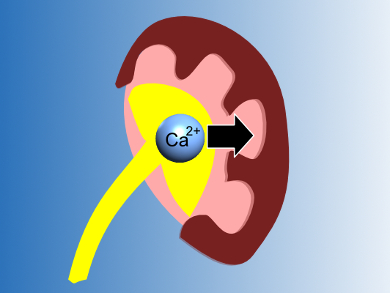Kidney stones are magnesium and calcium crystals that accumulate in the urine, thereby blocking its flux and causing strong pains. Drugs treating this condition are still lacking.
Jianghui Hou and co-workers, Washington University Renal Division, St. Louis, USA, have discovered that histone deacetylase inhibitors (HDACs), a class of drugs already approved for the treatment of leukemia and epilepsy, prevent kidney stone formation. The researchers demonstrated that HDACs repress the expression of a protein called claudin-14, which prevents calcium and magnesium re-absorption from the urine into the blood. In doing so, HDACs prevent the accumulation of calcium and magnesium in the urine and thus their pathological crystallization.
HDACs may thus be useful to treat kidney stones.
- Epigenetic Regulation of MicroRNAs Controlling CLDN14 Expression as a Mechanism for Renal Calcium Handling,
Yongfeng Gong, Nina Himmerkus, Allein Plain, Markus Bleich, Jianghui Hou,
J. Am. Soc. Nephrol. 2014.
DOI: 10.1681/ASN.2014020129




